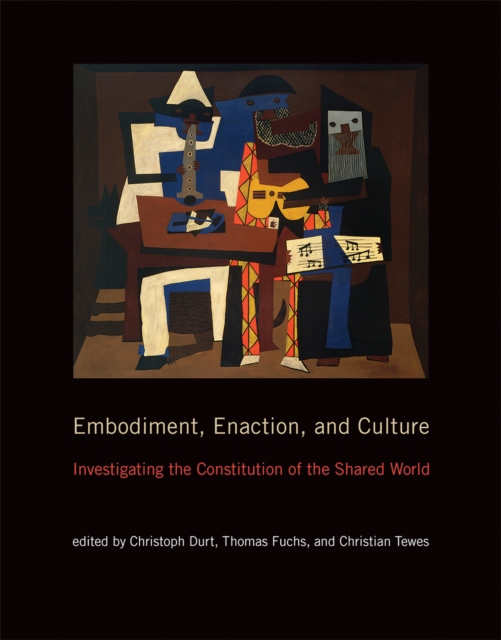
Embodiment, Enaction, and Culture : Investigating the Constitution of the Shared World PDF
Edited by Christoph Durt, Thomas Fuchs, Christian Tewes
Part of the The MIT Press series
Description
The first interdisciplinary investigation of the cultural context of enactive embodiment, offering perspectives that range from the neurophilosophical to the anthropological.
Recent accounts of cognition attempt to overcome the limitations of traditional cognitive science by reconceiving cognition as enactive and the cognizer as an embodied being who is embedded in biological, psychological, and cultural contexts. Cultural forms of sense-making constitute the shared world, which in turn is the origin and place of cognition. This volume is the first interdisciplinary collection on the cultural context of embodiment, offering perspectives that range from the neurophilosophical to the anthropological.
The book brings together new contributions by some of the most renowned scholars in the field and the latest results from up-and-coming researchers. The contributors explore conceptual foundations, drawing on work by Husserl, Merleau-Ponty, and Sartre, and respond to recent critiques. They consider whether there is something in the self that precedes intersubjectivity and inquire into the relation between culture and consciousness, the nature of shared meaning and social understanding, the social dimension of shame, and the nature of joint affordances. They apply the notion of radical enactive cognition to evolutionary anthropology, and examine the concept of the body in relation to culture in light of studies in such fields as phenomenology, cognitive neuroscience, psychology, and psychopathology. Through such investigations, the book breaks ground for the study of the interplay of embodiment, enaction, and culture.
Contributors
Mark Bickhard, Ingar Brinck, Anna Ciaunica, Hanne De Jaegher, Nicolas de Warren, Ezequiel Di Paolo, Christoph Durt, John Z. Elias, Joerg Fingerhut, Aikaterini Fotopoulou, Thomas Fuchs, Shaun Gallagher, Vittorio Gallese, Duilio Garofoli, Katrin Heimann, Peter Henningsen, Daniel D. Hutto, Laurence J. Kirmayer, Alba Montes Sanchez, Dermot Moran, Maxwell J. D. Ramstead, Matthew Ratcliffe, Vasudevi Reddy, Zuzanna Rucinska, Alessandro Salice, Glenda Satne, Heribert Sattel, Christian Tewes, Dan Zahavi
Information
-
Download - Immediately Available
- Format:PDF
- Pages:456 pages
- Publisher:The MIT Press
- Publication Date:07/04/2017
- Category:
- ISBN:9780262337120
Information
-
Download - Immediately Available
- Format:PDF
- Pages:456 pages
- Publisher:The MIT Press
- Publication Date:07/04/2017
- Category:
- ISBN:9780262337120










